Zurückliegende Calls
Planetary Scholars & Artists in Residence Program ( 2022-2025)
Call for Applications 2022: Planetary Materials
On behalf of the Panel on Planetary Thinking , we are pleased to invite applications for an innovative fellowship program based at the Justus-Liebig-Universität (JLU) in Giessen, Germany. The four-year program aims to stimulate transdisciplinary dialogues between the humanities, social sciences, natural sciences and the arts. In 2022, two fellowships will be awarded for the summer term, and two for the winter term to explore Planetary Materials . The fellowships last for three months, either to be realized within the period April-July or September-December. To contribute to each year’s thematic focus, we are seeking individuals who are willing to transgress disciplinary boundaries within and resulting from their advanced academic or artistic endeavors.
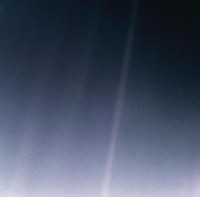
Fellows of the Planetary Scholars & Artists in Residence Program will receive the unique opportunity to engage in transdisciplinary dialogues while exploring how academia and the arts grapple with the manifold relations between societies and the planet . Drawing on academic work can not only amplify the magnitude and profundity of art works but also inspire them, and vice versa . In providing the space and conditions for intensive, collaborative work in transdisciplinary tandems, we intend to initiate ‘planetary projects’ to explore what it means that we do not just live on, but are part of an ever-changing planet. With this call we invite applications which focus on (1) Planetary Materials (2022). The topics for the four consecutive calls will be addressing (2) Planetary Spaces (2023), (3) Planetary Times (2024), (4) Planetary Agency (summer term 2025), and (5) Planetary Politics (winter term 2025).
Planetary Thinking on Planetary Materials
The overarching questions the fellowship program aims to address touch upon the following dimensions:
- In retrospect : How did planetary forces form us? How did diverse societies acquire planetary forces that are capable of transforming Earth?
- Concerning the present : How can different societies deal with irregular-regular planetary changes that are beyond their influence? What does it mean to have such power, how should it be deployed and when should it be withheld?
- And prospectively : Which planetary forces beyond our influence can we anticipate? Which planetary dynamics can we ally or reunite with, and which alliances should we quit (if possible)?
Possible foci for the first round of fellows working on or directly with Planetary Materials (2022) could include, but are certainly not limited to:
- existing and/or imaginary materials from terrestrial and/or extraterrestrial spheres, such as the elements, (star)dust, plastic, sand, fragments of meteorites;
- ‘organic’ and/or ‘mechanical’ forms of life and/or other materials (e.g., bacteria, viruses, artificial intelligence, genetically modified organisms);
- ‘alive’ and/or ‘dead’ materials, particularly those through which planetary changes manifest (e.g., fossils, tree trunks, glaciers);
- abstract planetary phenomena (e.g., climate change, ocean acidification, earthquakes, floods, evolution, species extinction);
- forms of media addressing planetary perspectives (e.g. environmental storytelling, inter-species music and art, performances).
While we wish to stress the open range of possible projects, an overarching agenda to further an understanding of Planetary Materials , especially by rendering them visible, tangible, and/or palpable by academic or creative means should be evident.
Fellowship Awards
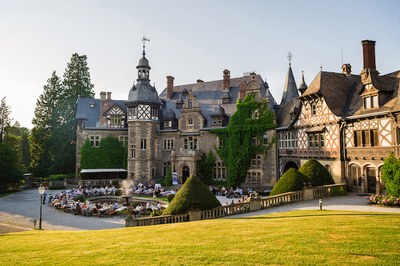
All fellows are expected to take up residence in Giessen (or close by) throughout their three-month fellowships. They will be granted a monthly stipend of 5,000 euros/month , to cover all travel and living expenses. In addition, funding for workshops, guest speakers, exhibitions, publications etc. can be made available upon request. During their residence in Giessen, fellows will be fully integrated into the JLU’s institutional network and benefit from its comprehensive range of research facilities . Fellows are expected to participate in regular panel meetings, such as the Planetary Lecture Series (starting in 2022), and to design an engaging workshop for and possibly with a transdisciplinary audience. Preferably in collaboration with their co-fellow artist/scholar, fellows may conceptualize the workshops in a format of their choosing, such as a masterclass, depending on their individual, scholarly and/or artistic subject matters.

Comfortable and reasonably-priced one-room apartments with fully equipped kitchens have been reserved in the university’s ‘ Alexander von Humboldt’ guest house , but fellows are welcomed to take up residence elsewhere according to their preferences. They will be provided with their own, newly renovated and furnished office spaces and/or studios at the Panel on Planetary Thinking ’s headquarters within the city center―inside one of Giessen’s most characteristic, old-style buildings.
Fellows will also be integrated into academic life at the JLU, have full access to its libraries and academic support, and have the opportunity to attend a wide range of regular events. As we work in close cooperation with the JLU’s international office, future fellows will receive support with any formalities connected to their stay in Giessen (e.g., questions about health insurance, visas or registering at city hall). Please do not hesitate to contact us with any specific requests you might have in this regard.
Requirements and Application Procedure
Fellows must have a demonstrated advanced academic or artistic record relevant to Planetary Materials. They must commit to a stay of three months and take up residence in or close to Giessen. They should also be willing to participate actively in the activities outlined above and (co-)organize one workshop.
The application (in English) should include the following:
- Cover letter (one page)
- Curriculum Vitae
- Project description (one page)
- Tentative abstract for workshop or alternative format (one page)
- Outline of any specific requests (e.g., materials/equipment needed, individual requirements with regards to furnishing office spaces/studios)
Applicants are welcome to apply individually or as transdisciplinary pairs (artist & scholar) with a specific project in mind to which they will dedicate their fellowship. Those submitting joint applications are welcome to compile a full application each while emphasizing the points of contact between their projects.
The deadline for applications is 5 th December, 2021. Applications must be sent via email to Liza.Bauer@gcsc.uni-giessen.de . Shortlisted applicants may be invited for online interviews in December 2021, decisions will be announced by the end of the year. You can find a pdf version of the call under this link .
We are very much looking forward to reading your applications!
Planetary Scholars & Artists in Residence Program
Call for Applications 2023: Planetary Spaces
On behalf of the Panel on Planetary Thinking , we are pleased to invite applications for an innovative fellowship program based at the Justus-Liebig-Universität (JLU) in Giessen, Germany. The consecutive four-year program fosters transdisciplinary dialogues between the humanities, social sciences, natural sciences, life sciences and the arts. In 2023, two fellowships are awarded from April-June, and two others from September-November to explore Planetary Spaces . To contribute to each year’s thematic focus, we seek individuals who are willing to transgress disciplinary boundaries within and resulting from their advanced, academic and creative endeavors.
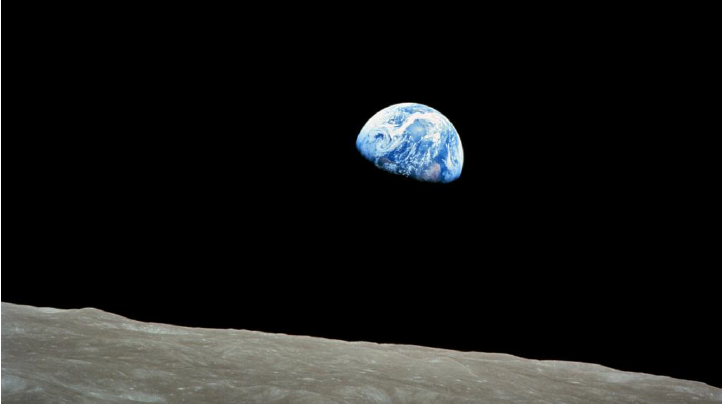
|
The Planetary Scholars & Artists in Residence Program (2022-2025) provides the space for intensive, collaborative work on how the sciences and the arts grapple with the manifold relations between societies and the planet. Currently, the first round of fellows are working on the overarching theme of PLANETARY MATERIALS ‐ranging from tangible wood and tree rings to vibration as a planetary trans-material and social sculpture.
Engaging with what it means that we do not simply live ‘on’, but are part of an ever-changing planet, planetary projects unite scientific and creative methods to communicate their insights. To the second round of the program, we invite applications which focus on (2) PLANETARY SPACES (2023), whereas the topics for the consecutive calls will be addressing (3) PLANETARY TIMES (2024), (4) PLANETARY AGENCY (summer term 2025), and (5) PLANETARY POLITICS (winter term 2025).
Planetary Thinking on Planetary Spaces
The overarching questions the program aims to address touch upon the diverse dimensions:
- In terms of the past : How did planetary forces form us? How did we obtain planetary forces that are capable of transforming Earth?
- As concerns the present : How can humans deal with irregular-regular planetary changes that are beyond their influence? What does it mean to have such powers, how should they be deployed and when should they be restrained?
- And prospectively : Which planetary forces beyond our influence can we anticipate? Which planetary dynamics can we ally or reunite with, and which alliances should we quit (if possible)?
Possible foci for the second round of projects seeking insights into Planetary Spaces (2023) include, but are certainly not limited to:
- specific sites on planet Earth or another planet, such as the Amazon, the Mariana Trench or the Valles Marineris;
- interplanetary spaces, such as the orbit of Venus, the route of a spacecraft to Mars or the Van Allen radiation belt;
- trans-spaces, such as coastal regions, flight- or land routes of human and nonhuman migration, artificially connected spheres and deep space, such as networks created by sensors in, on or around Earth;
- contested spaces, such as indigenous land, border areas and other sites of political, socio-cultural, or economic conflict, threatened or disrupted habitat or natural reserves;
- chemical and biological geographies, such as the distribution of human and nonhuman life, carbon or hydrogen circulation;
- real and imaginary spaces in representation, such as maps and globes, climate- or science-fiction literature, video games, art installations;
While we wish to stress the wide range of possible projects from pilot studies to risky investigations to finalizing ventures, an overarching agenda to further an understanding of Planetary Spaces , particularly by rendering them visible, tangible, and/or palpable by creative/scientific means should be prominent.
Fellowship Awards

All fellows are expected to take up residence in Giessen (or its proximity) throughout their three-month fellowships. They will be granted a monthly stipend of 5,000 euros/month , which is supposed to cover all travel and living expenses. In addition, funding for workshops, guest speakers, exhibitions, publications etc. can be made available upon request. During their residence in Giessen, fellows will be fully integrated into the JLU’s institutional network and benefit from its comprehensive range of research facilities. Fellows are expected to participate in the regular panel meetings, such as the Planetary Lecture Series , and to design an engaging workshop with and for a transdisciplinary audience. Preferably in collaboration with their co-fellow artist/scholar, fellows may conceptualize the workshops in a format of their choosing, such as a masterclass, depending on their individual, scholarly and/or artistic subject matters.
Comfortable apartments with fully equipped kitchens have been reserved in the university’s
‘
Alexander von Humboldt’ guest house
, but fellows are welcomed to take up residence elsewhere according to their preferences. They will be provided with their own,

Please do not hesitate to contact us with any specific requests you might have. As we work in close cooperation with the JLU’s international office, future fellows will receive adequate support on any formalities connected to their stay in Giessen (e.g., on questions about health insurance or registering at the city hall).
Requir ements and Application Procedure
|
|
Please send the application (in English) as a single pdf-file and include the following:
Applicants are welcome to apply individually or as transdisciplinary pairs (artist & scholar), with a clearly defined project in mind to which they will dedicate their fellowship. Please note that two individual CVs are required for joint applications, and your personal ideas and perspectives upon your collaborative project should be clearly outlined. The deadline for applications is September 1st, 2022. Applications must be sent via email to panel@planet.uni-giessen.de . Shortlisted applicants may be invited for online interviews in September 2022, decisions will be announced by October. For more information, please see our website or consult us via panel . We are very much looking forward to reading your applications! |
Planetary Scholars & Artists in Residence Program
Call for Applications 2024: Planetary Times
On behalf of the Panel on Planetary Thinking , we are pleased to invite applications for an innovative fellowship program based at the Justus-Liebig-Universität (JLU) in Giessen, Germany. The consecutive four-year program fosters transdisciplinary dialogues between the humanities, social sciences, natural sciences, life sciences and the arts. In 2024, two fellowships are awarded from April-June, and two others from September-November to explore Planetary Times . To contribute to each year’s thematic focus, we seek individuals who are willing to transgress disciplinary boundaries within and resulting from their advanced, academic and creative endeavors.
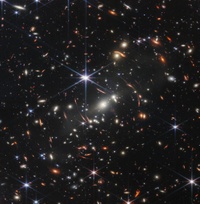
|
The Planetary Scholars & Artists in Residence Program (2022-2025) provides the space for intensive, collaborative work on how the sciences and the arts grapple with the manifold relations between societies and the planet. Currently, the second round of fellows are working on the overarching theme of Planetary Spaces ‐ their topics ranging from the shrinking and restoration of Lake Chad, to adaptation strategies of more-than-humans in toxic environments as well as to forms of life and the flows of energy that thrive on the ocean floor, and to the interplanetary space in form of a history of the Sun’s discovery.
Engaging with what it means that we do not simply live ‘on’, but are part of an ever-changing planet, planetary projects unite scientific and creative methods to communicate their insights. To the third round of the program, we invite applications which focus on (3) PLANETARY TIMES (2024), whereas the topics for the consecutive calls will be addressing (4) PLANETARY AGENCY (summer term 2025), and (5) PLANETARY POLITICS (winter term 2025).
Planetary Thinking on Planetary Times
The overarching questions the program aims to address touch upon the diverse dimensions:
- In terms of the past : How did planetary forces form us? How did we obtain planetary forces that are capable of transforming Earth?
- As concerns the present : How can humans deal with irregular-regular planetary changes that are beyond their influence? What does it mean to have such powers, how should they be deployed and when should they be restrained?
- And prospectively : Which planetary forces beyond our influence can we anticipate? Which planetary dynamics can we ally or reunite with, and which alliances should we quit (if possible)?
Possible foci for the third round of projects seeking insights into Planetary Times (2024) include, but are certainly not limited to:
- temporal dynamics of human and more-than-human generations, including the impact of temporal violence amongst them, such as displacement, genocide or mass extinctions;
- examples and histories of (de)synchronizations, such as those between social and natural times as seen when land use affects wealth and resource distribution. This includes temporalities in resource extraction such as mining landscapes that become temporal sites of past, present, and future;
- rhythms, such as planetary rhythms of Earth’s daily rotation. Other examples include yearly seasons, lunar cycles, rhythmic patterns of urban mobility, the ‘streetscape’ during day- and night-time, or temporal migration rhythms of humans and more-than-humans;
- artificial timescapes, such as the circumstances under which the use of artificial intelligence compresses, stretches, or complicates the relationship between subjective and world time. This can be connected to interplanetary settings, multispecies histories, or multi-planetary futures;
- tempo, such as the pace and sequencing that enables or disables a transformation towards renewable energies. This could address the Earth’s oscillation between being managed as a fossil-fuel dominated planet and one that uses solar energy as a renewable resource;
- deep time, this could include processes taking place on a planetary timescale, such as the development of the Earth’s atmosphere, as well as analyses of interferences by human civilizations with those processes in the Anthropocene;
- insights into temporal literacies and their cultivation in societies by means of policies and institutions attuned to the planetary condition. This includes questions of democracy and policy-making answering to the demands of future generations, such as dealing with nuclear waste or per- and polyfluoroalkyl substances (PFASs).
While we wish to stress the wide range of possible projects from pilot studies to risky investigations to finalizing ventures, an overarching agenda to further an understanding of Planetary Times , particularly by rendering them visible, tangible, and/or palpable by creative/scientific means should be prominent.
Fellowship Awards
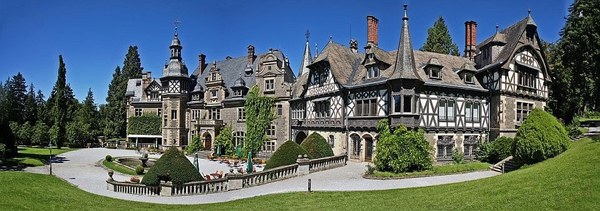
All fellows are expected to take up residence in Giessen (or its proximity) throughout their three-month fellowships. They will be granted a monthly stipend of 5,000 euros/month , which is supposed to cover all travel and living expenses. In addition, funding for workshops, guest speakers, exhibitions, publications etc. can be made available upon request. During their residence in Giessen, fellows will be fully integrated into the JLU’s institutional network and benefit from its comprehensive range of research facilities. Fellows are expected to participate in the regular panel meetings, such as the Planetary Lecture Series , and to design an engaging workshop with and for a transdisciplinary audience. Preferably in collaboration with their co-fellow artist/scholar, fellows may conceptualize the workshops in a format of their choosing, such as a masterclass , an exhibition , or a performative activity , depending on their individual, scholarly and/or artistic subject matters.
Comfortable apartments with fully equipped kitchens have been reserved in the university’s
‘
Alexander von Humboldt’ guest house
, but fellows are welcomed to take up residence elsewhere according to their preferences. They will be provided with their own,

Please do not hesitate to contact us with any specific requests you might have. As we work in close cooperation with the JLU’s international office, future fellows will receive adequate support on any formalities connected to their stay in Giessen (e.g., on questions about health insurance or registering at the city hall).
Requir ements and Application Procedure
|
|
Please send the application (in English) as a single pdf-file and include the following:
Applicants are welcome to apply individually or as transdisciplinary pairs (artist & scholar), with a clearly defined project in mind to which they will dedicate their fellowship. Please note that two individual CVs are required for joint applications, and your personal ideas and perspectives upon your collaborative project should be clearly outlined. The deadline for applications is September 1st, 2023. Applications must be sent via email to panel@planet.uni-giessen.de . Shortlisted applicants may be invited for online interviews in September 2023, decisions will be announced by October. For more information, please see our website or consult us via panel . We are very much looking forward to reading your applications! |
Call for Applications 2025
Planetary Scholars & Artists in Residence Program
PROTOTYPING A PLANETARY DEMOCRACY
Eight Fellowships on Planetary Agency & Politics
Fellows for Planetary Agency & Politics have been selected and will be announced early in 2025
Click here to download a PDF Version of the Call
In political responses to anthropogenic planetary distress, the core principle of freedom no longer seems to be a priority. As the Earth’s critical biophysical systems are growing increasingly fragile, approaching collapse, the bases for the livelihoods of millions of people and more-than-human beings are under threat. Equipped with reformative control mechanisms dating back to the onset of the environmental movement (e.g., the sustainability paradigm or the IPCC), democratic systems have failed to avert the present polycrisis . Instead, fossil-fueled, extractive ways of living off — as opposed to with — the planet continue to prevail while ecosystems collapse, species go extinct, and geopolitical conflicts abound. In the meantime, democracies have transformed from proactive into reactive forces. Unexpressive of the collective “will” of other than human political agents, nation-state- and human-centered governments remain incapable of coordinating collective action to keep the Earth habitable. However, the freedom of all humans, including future generations, is inextricably linked to the vibrancy of the biosphere; the struggle for civil rights and the struggle for the planet are one. To preserve democratic values and avoid dictatorship in answer to the planetary crisis, political institutions need to recalibrate towards the earthly multitudes that shape the condition of our lives.

|
The Panel on Planetary Thinking at the Justus-Liebig-Universität (JLU) in Giessen, Germany, seeks scholars and artists with visions of designing these future institutions. For the periods April-June and September-November 2025 , we award eight fellowships for scientific and creative projects that conceptualize and experiment with strategies to integrate more-than-human agencies into politics. To restore the proactive capacity of democratic systems to foster freedom, equality, and solidarity, all “voices” that pose demands to and are affected by their decisions must participate. Democratic thinkers consider these to include not only the perspectives and intelligences of more-than-human life but also those of ecosystems, ecoregions, and planetary forces, as well as the ones provided by the emergent technosphere or (in)animate matter. However, concrete plans are missing for realizing this political practice or differentiating between the collectives and individuals within this unwieldy crowd. To contribute to closing this gap, we need insights on (1) how PLANETARY AGENCY manifests and (2) how PLANETARY POLITICS can answer to more-than-human political agency. As a result of this final round of our consecutive, four-year fellowship program, we aim to design a planetary democracy prototype.
Planetary Thinking on Agency & Politics
We do not simply live ‘on,’ but are part of an ever-changing planet—alongside a multitude of others. To grapple with what that means and how we can meet our human responsibilities, the Planetary Scholars & Artists in Residence Program (2022-2025) facilitates dialogues between the humanities, social sciences, natural sciences, life sciences, and the arts. The program’s overarching questions touch upon the following dimensions:
- In terms of the past : How did planetary forces form us? How did we obtain planetary forces that are capable of transforming Earth?
- Concerning the present : How can humans deal with irregular-regular planetary changes beyond their influence? What does it mean to have such powers, how should they be deployed, and when should they be restrained?
- And prospectively : Which planetary forces beyond our influence can we anticipate? Which planetary dynamics can we ally or reunite with, and which alliances should we quit (if possible)?
Currently, the third group of fellows is working on the overarching theme of PLANETARY TIMES ‐ their projects address the planetary evolution in information processing, comparative planetary histories, the practice and philosophy of de-extinction, as well as planetary timescales and the conception of eternity investigated through case studies on glaciers, permafrost tunnels, and cryopreservation facilities. Previous fellows have investigated two other theoretical premises of planetary thinking: PLANETARY MATERIALS (2022) and PLANETARY SPACES (2023). In this final round, we wish to bundle creative and scientific potentials to apply this planetary lens while conceptualizing and designing the building blocks needed for a planetary democracy ( PLANETARY AGENCY and PLANETARY POLITICS , 2025). Applicants may focus on increasing our understanding of more-than-human agencies by rendering them visible, tangible, and interpretable through political terms. From there, we wish to reflect on and experiment with the respective institutional structures and democratic practices that enable these agents’ political inclusion. Therefore, applications may focus on either PLANETARY AGENCY or PLANETARY POLITICS or address both dimensions complementarily. Applicants should aim to generate insights that enhance the current state of research and practice outlined in this Call, and they are welcome to apply for both terms if their projects require more than one period to be realized.
Projects seeking insights into the implications we can draw from PLANETARY AGENCY on the institution building of a planetary democracy include, but are not limited to:
- The (co-)shaping of the Earth, other planets, ecosystems, and human societies by
→physical, planetary, or cosmic forces (e.g., the impacts of gravity and seismic forces on architectural design, the structuring of societies by bodies of water, or the geopolitical consequences of solar storms);
→microbial, fungal, vegetal, and nonhuman animal life (e.g., the terraforming capacities of bacteria, the information exchange in forest ecosystems via mycorrhizal networks humans draw upon, or the co-shaping of societal life between humans and domestic animals);
→technological or “artificial” life (e.g., the social and political impacts of Large Language Models and other AI technologies, as in oil extraction or conservation efforts, or the use of robotics in research, therapy, or space exploration);
- Research on more-than-human communication (e.g., plant bioacoustics utilizing digital technologies, biomimetic robots, and supported by artificial intelligences).
Projects focusing on PLANETARY POLITICS should aim to design the building blocks for a planetary democracy prototype. Possible foci include, but are not limited to:
- Concrete proposals for new institutional frameworks, practices, and spaces that enable this new institution to answer to more-than-human agencies (e.g., more-than-human voting practice, constituencies, or parliaments);
- Visionary expansions of political concepts, theories , and real-world experiments that
→recognize and answer to more-than-human political agents (e.g., more-than-human rights, interspecies democracy, multispecies justice, or planetary commons);
→aim for safeguarding planetary habitability (e.g., Earth System Governance, planetary federalism, or ecological democracy);
→practice more-than-human collaboration, inspiring more-than-human politics (e.g., Animals in the Room, Organisms Democracy, the Embassy of the North Sea, Terra0, The Internet of Animals, or The Internet of Trees);
- Research and experiments exploring the inspirations we can draw from the political dimensions inherent to planetary agencies (e.g., efforts in more-than-human translation, engagement with democratic arrangements of insects or herd animals, or more-than-human forms of protest or preferences).
Fellowship Awards & Expectations

All fellows are expected to reside in Giessen (or its proximity) throughout the period(s) of their fellowships. They will be granted a stipend of 5,000 euros/month , which is supposed to cover all travel and living expenses. In addition, funding for workshops, guest speakers, exhibitions, publications, etc., is available upon request. During their residency in Giessen, fellows will be fully integrated into the JLU’s academic life, have full access to its libraries, and may be put in touch with researchers from its comprehensive range of research facilities . The Panel also maintains a range of cooperations with other organizations, ranging from Giessen’s theater to its cinema and makerspace. All fellows are expected to participate in the regular panel meetings and to design an engaging workshop with and for a transdisciplinary audience in collaboration with their co-fellows. Depending on their individual scholarly and/or artistic subject matters, they may conceptualize the workshops in a format they choose, such as a masterclass , an exhibition , or a performative activity .
Comfortable apartments with fully equipped kitchens have been reserved in the university’s
‘
Alexander von Humboldt’ guest house
, but fellows are welcome to take up residence elsewhere according to their preferences. They are provided with newly renovated and furnished
co-working/studio spaces
at the
Panel on Planetary Thinking
’s headquarters within the city center ― inside one of Giessen’s most characteristic, old-style buildings.

Please do not hesitate to contact us with any specific requests. As we work closely with the JLU’s international office, future fellows will receive adequate support on any formalities connected to their stay in Giessen (e.g., questions about health insurance or residence permits).
Requir ements and Application Procedure
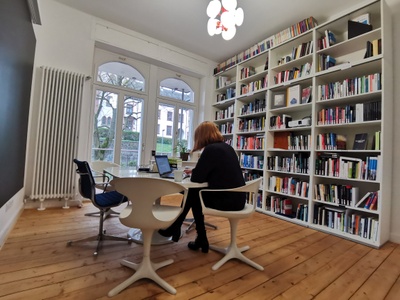
→ fellows should have an advanced academic or artistic record relevant to Planetary Agency, -Politics, or democratic theory; as we prioritize the respective project's relevance for our theme as against academic degrees, holding a PhD is not a prerequisite;
→ fellows have to commit to taking up residence in or in the proximity of Giessen during the period they apply for;
→ fellows are obligated to (co-)organize one workshop that may include an exhibition or a performative activity;
→ artists interested in contributing to the final exhibition should be available for remote coordination from October 2024 onwards;
→ fellows should be willing to participate actively in the activities outlined above.
Please send the application (in English) as a single pdf-file and include the following:
- Cover letter (one page max.) stating your motivation to apply;
- Curriculum vitae
- artist portfolio on works connected to planetary thinking (for artists); which may include a suggested work for the exhibition (one-page max.);
- project description (one page max.) that outlines your planned contribution to building the planetary democracy prototype (for both scholars & artists);
- tentative abstract for a workshop or event of an alternative format (one page max.);
- An outline of any specific requests (materials/equipment needed or individual requirements regarding furnishing office spaces/studios, etc.)
Please also note that:
The title of your PDF should reflect the period(s) you are available for and your thematic focus :
“LastName_Summer/Winter_Agency/Politics,”
“LastName_Summer/Winter_Politics,”
“LastName_Winter_AgencyPolitics,”
“LastName_SummerWinter_Politics,” or other constellations.
Applicants are welcome to apply individually or as transdisciplinary pairs (artist and scholar) with a clearly defined project in mind to which they will dedicate their fellowship. Please note that two individual CVs are required for joint applications, and your personal ideas and perspectives on your collaborative project should be clearly outlined.
The deadline for applications is July 24, 2024 . Applications must be sent via email to panel . Shortlisted applicants may be invited for online interviews in late August/early September 2024. Decisions will be announced shortly after.
For more information, consult us via email.
We are very much looking forward to reading your applications!
